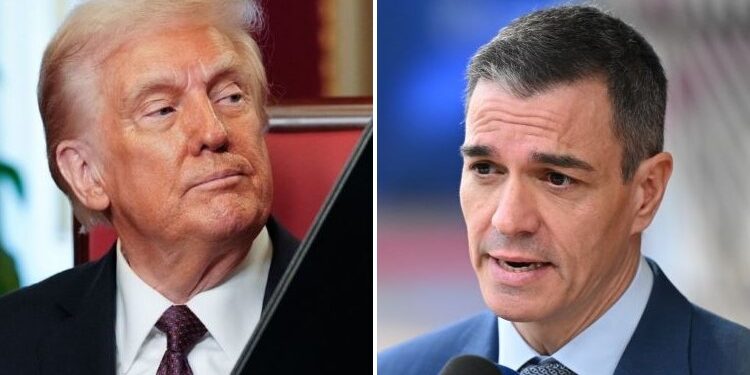The Diplomat
The United States could limit Spanish companies’ access to public tenders or impose specific barriers to banks or consulting firms operating freely in its territory in retaliation for the decision by Pedro Sánchez’s government not to allocate 5% of GDP to defense spending, as demanded by US President Donald Trump.
A document prepared by the Spanish Chamber of Commerce and reported by the Europa Press news agency indicates that Washington could also impose restrictions on access to or use of technology from the United States, such as cloud platforms or encryption technologies.
Other measures could also be considered to harm Spanish companies, such as tightening phytosanitary requirements for agri-food products, such as fruits, wine, or oil, citing public health reasons, or requiring new certifications for Spanish machinery or industrial products through additional technical controls or bureaucratic barriers.
In the area of investments, the government could suggest political or fiscal risks to US companies for investing in Spain, expand its controls on mergers and acquisitions to make it difficult for Spanish companies to acquire US companies, or influence large US funds to reduce their exposure in strategic sectors in the country, such as energy, banking, or telecommunications.
Internationally, the United States could even use its indirect veto on Spain in multilateral organizations or impose conditions on cooperation in security or intelligence related to economic issues.
In any case, the report by the Spanish Chamber of Commerce emphasizes that the European Union’s trade policy is collective and exclusive in nature, and that any trade decision must take the entire Union into account.
For example, if the US decided to apply selective tariffs to a single EU member state, such as Spain, the European Union would be obliged to file a complaint with the World Trade Organization (WTO) for discrimination contrary to international law, as was the case with Spanish black table olives.







